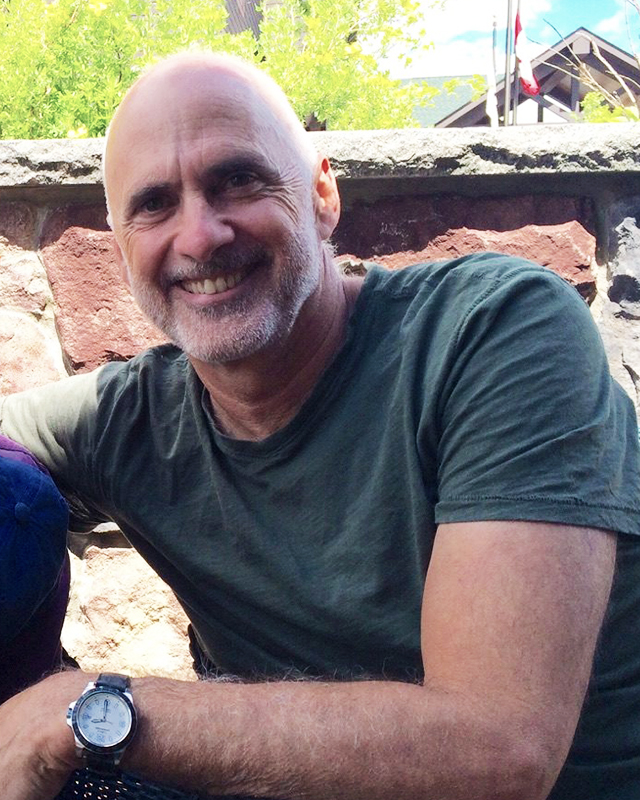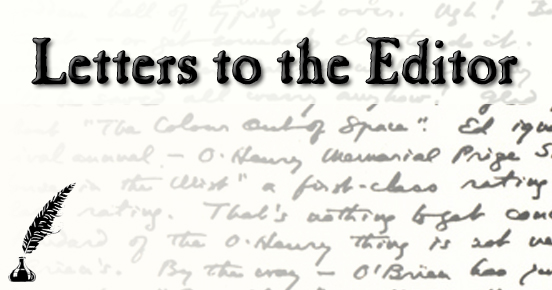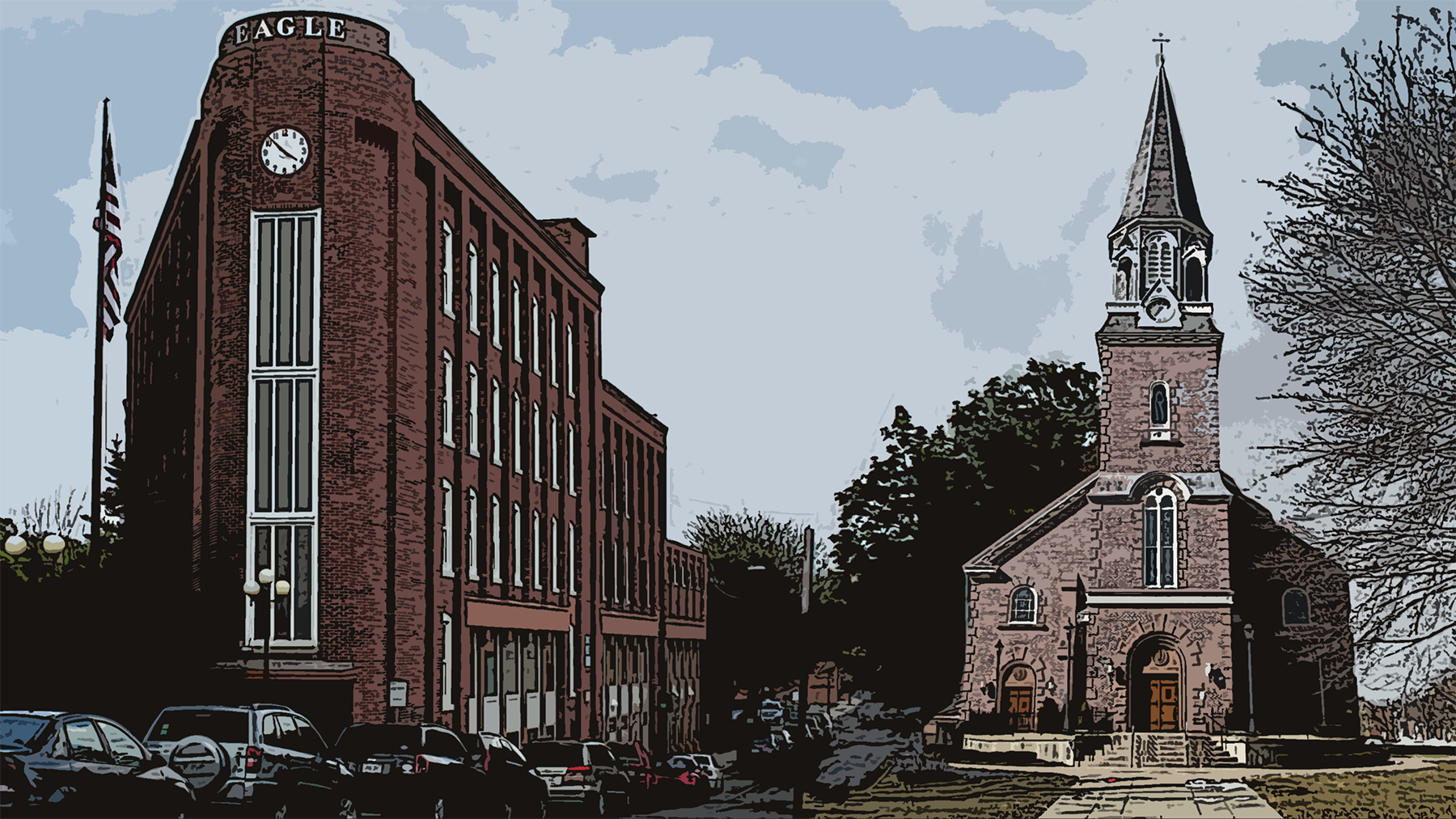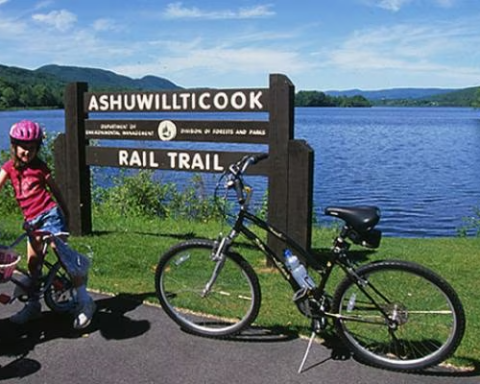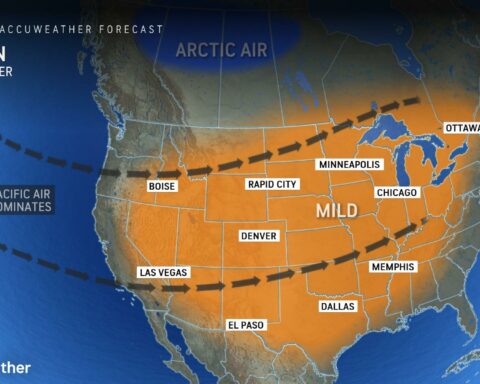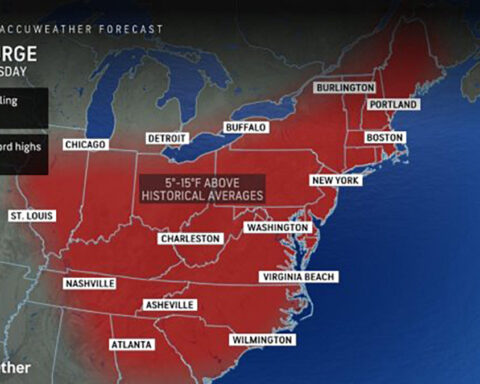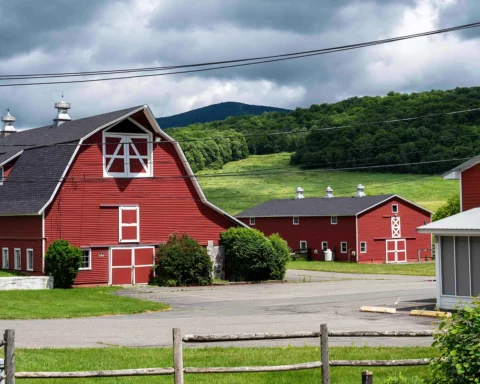Podcast (top-left-corner): Play in new window | Download
Top Left Corner: This is the top left corner at The Greylock Glass. And this is Episode # 172 of the Top Left Corner right here on The Greylock Glass — GreylockGlass.com, the Berkshires’ mightiest independent alternative news thing. I’m your host, Jay Velazquez. And as always, I thank you for tuning in. Welcome to the show, which was first aired, streamed, dropped. However you want to say it. Sunday, October 2nd, 2022. And this is an important show. It really is. We are discussing an issue that is near and dear to my heart, and near and dear to the hearts of anyone who values journalism, investigative journalism, local media, and the freedom that we enjoy here in this country, at least at the moment, to report on sticky issues.
RELATED: Top Left Corner #173: Bill Densmore on protecting source identity
Op-Ed: “On The Berkshire Eagle and “Reporter’s Privilege”
Judge in clergy rape suit says diocese can’t have information that reveals confidential Eagle sources
The issue at hand began with reporting, investigative reporting done by Larry Parnass, who is the managing editor for innovation at the Berkshire Eagle, into the allegations of clergy assault on a young boy in the 1960s. This allegation obviously comes on the heels of other such revelations within the Catholic Church. And it was. It was very difficult for a lot of people to to deal with in the very beginning because once the first person spoke up, it turned out that there were a lot of people who had a lot to say as well. This. Particular individual is now deceased. Its bishop, Bishop Christopher J. Weldon and the Springfield Diocese, which has responsibility for this matter, hired a retired judge, Peter Velis, to investigate the allegations and to find out whether or not they were believable and.
Top Left Corner: It turns out that that the former judge, Judge Willis, found out that, yes, in fact, these were, quote, unequivocally credible and quote, that the bishop sexually molested him repeatedly. This is the unnamed victim in the early 1960s in group assaults joined by other clergy. And. We’ll talk a little bit more about the facts of the case with Larry Parnass, but not to too much really, because you can get that that reporting at the Berkshire Eagle. And I encourage you to follow the link in the show notes to the the earliest one report. And then you can sort of, you know, hopscotch up to today. But the issue that we’re talking about is not the facts of the case. The issue is that the Springfield diocese is is vehemently, vigorously trying to compel Larry Parnas to turn over his notes, recordings, conversations, anything that is that pertains to this to this case and to his investigation. It is shocking to think that what that would mean. And it’s it’s pretty clear that when Larry Parnass responded, he told the court that he cannot produce the requested information while protecting the identity of a confidential source. Forcing him to do this might also give future whistleblowers pause. And that’s really important because there is a potential for, you know, if he turns things over to the court so that they become public record, a lot of people in the future might be a lot less likely to speak with journalists.
Top Left Corner: And that is where things start crumbling when it comes to the importance of a free press. So, you know, the diocese claims that the information is critical to determine the consistency of the plaintiff’s statements about his abusers. And the diocese rejects claims that a source’s privacy is a consideration in this case. So very different sides, polar opposites of the issue. And the judge who is hearing this, Judge Karen L Goodwin. Is going to be making her decision very, very soon. Initially, when they sort everything, Judge Goodwin said that it was a classic fishing fishing expedition by the diocese and she narrowed the scope of the diocese requests to Parness and centered on just certain certain materials, certain kinds of information and. The Eagle has asked their attorney to ask the judge to reconsider the the court order that she may issue, that he turned over the information. It’s really it’s really we’re on pins and needles here. Frankly, we’re on the edge of our seats because if Judge Goodwin says you’ve got to turn over A, B and C, that leaves us in an uncomfortable position of having to decide whether to. Provide those materials or whether to to dig in his heels. So let us we’re going to go to that conversation in just a moment. But first, we’re going to have a very short message from FEMA on emergency preparedness.
FEMA PSA: If you can plan barbecues and weddings, you can plan to protect yourself from a natural disaster. Sign up for local alerts, prepare an emergency kit, and make a family communications plan. Get started at ready.gov/plan; brought to you by FEMA and the Ad Council.
NTRVW: Larry Parnass
Top Left Corner: And with me on the line is Larry Parnass, the Managing Editor for innovation at the Berkshire Eagle. Larry, thank you so much for being on the Top Left Corner.
Larry Parnass: Oh, you’re welcome, Jason. It’s nice to be with you.
Top Left Corner: The the subject today, I and I should say, I wish the circumstances were different because this is this is a tough, sticky situation to be in. No reporter wants to find him or herself in the crosshairs of a of a court order. And so this is I realize this is probably not the easiest time for you. Are you hanging in there?
Larry Parnass: I am, yeah. Yeah. We have very good legal representation. And, you know, this is a foundational principle of journalism protecting confidential sources. So I haven’t had to go through this at the Eagle. And here it is. So we’re dealing with it. But thanks. Thanks for your thanks for your concern.
Top Left Corner: You were the editor in chief at the Daily Hampshire Gazette prior to the Eagle.
Larry Parnass: Yep. I was the editor in chief there for six years, but spent quite a lot of my career in in the North Hampton area with the Gazette. So I’ve been doing journalism in western Massachusetts since 1988.
Top Left Corner: That’s that’s a little while. Yeah. You should probably have a pretty good handle on this this side of the state here by now. The and the thing is, we don’t exist. I mean, for those people who are listening east of, say, you know, Shelburne Falls, we’re out here, we still part of Massachusetts, we’re not independent sovereign state, somewhere between Massachusetts and New York. But, you know, there it is. Did you ever in your time at the at the Gazette, did you ever encounter anything similar to this?
Larry Parnass: Nope. No, I’ve we’ve had court issues before and lawsuits over coverage, which we you know, you always defend vigorously. But this is the first time this is the first time that that in my reporting that I’ve been asked to turn over not only documents but submit myself for a deposition. And the you know, the the the topic here is the diocese is defending a lawsuit filed in early 2021 by a man who alleges he was. Raped by clergy in the early 1960s. That represents about half of the counts in the civil lawsuit. And then between 2014 and the time of the lawsuit claims that the diocese acted to defame him and do other torturous, torturous acts, meaning things that injured him through its handling of his reporting of that clergy abuse, notably involving a long standing former bishop for the diocese, the Springfield Diocese. Christopher Weldon. So that’s that’s the that’s the that’s the nature of what this is about. Of the diocese. Just to fill your listeners in a little bit more. The diocese asked us in March to provide a long list of documents and to be subject through deposition to a long list of of issues and things related to this lawsuit. Anything pretty much anything and everything. That’s the language they use that relates to this complaint and and our reporting on it. It was the Eagles reporting in 2019 that led former Bishop Rozanski to commission an outside review of the whole situation by a retired judge. And then a year later when that report came in, then to acknowledge that this man had had been his, that his complaint had been not properly attended to by the diocese, and that the initial assaults when he was a 9 to 11 year old altar boy in the community of Chicopee, Mass. Right. That he had undergone that pretty horrific.
Top Left Corner: Yeah. Abuse. I did want to I did I was I’m glad that you went to went there because the fact is of the matter is. Well, I won’t say that it’s not disputed in any way, shape or form, because, you know, but this was Judge Peter Velis, who was hired as an independent investigator or as independent as possible. And his his findings from his investigation said that. That they were credible. These claims of abuse were believable. There were some terminology that they used, but essentially that the diocese does not have a problem believing these accounts, that that’s not an issue. In fact, they are so shaken by it, they’ve removed the bishop’s name from that of a hospital. They’re moving his or they’ve moved his remains from a place of honor in the cemetery to a simple, just standard gravestone. No, no, ornate, monumental motion. So the facts of the matter are not really the issue here. The issue for them and and what we’re waiting on on this is Judge Karen L. Goodwin, who’s going to be making a decision on what she thinks should be turned over, if anything. She originally called this, according to your reporting, a classic fishing expedition by the diocese, which is not unusual for attorneys to just basically ask for the kitchen sink. Everything and the kitchen sink when they’re when they’re looking for this. And part of it is a is just a it is it’s warfare. It’s basically legalistic warfare. It takes up resources, it takes up time. It’s sort of psychologically, you know, distressing. And so that’s just sort of what they do as lawyers. Do you think that the diocese has any. Understanding, shall we say, of the the monumental nature of what they’re asking for by asking for pretty much everything.
Larry Parnass: There. The Diocese is, in my view, is entitled to mount a vigorous defense. You know, we would all we would all expect that if we were the subject of a lawsuit. You get good counsel and they do everything they can to find cracks in the case that’s been waged against you in court. So I don’t think personally, I don’t I don’t fault them for that. You know, the issue that comes up is in Massachusetts, while Massachusetts doesn’t have a blanket shield law that bars requests like this for reporters to provide information on an issue for which a reporter has granted a confidential assurance to a source, it’s because there’s no shield law. It’s done by case law. But the case law is extensive. And there there have to be there are in these other cases that have been, you know, come before. There’s a lot of guidance on when a request like this should be considered by the court to be to be allowable. So just to catch people up from March. An attorney for the Eagle fought this subpoena and deposition request. And then in late July, Judge Goodwin pretty sharply narrowed the list of documents and the topics for deposition that she would that she would allow. Right. That that was she ruled without having any hearing on that. And the Eagles attorney, Jeff Pyle, went back to the court and said, you know, with all respect, we think that there’s some issues that haven’t been properly considered here. And he moved to have the subpoena and the deposition request quashed entirely. And then just a week ago, Goodwin held a virtual hearing on this. And both the both Pyle and the attorney for the plaintiff and importantly, the attorney. Attorneys for the diocese were able to speak to this. They they say that they that they need and have a right to this material. And Jeff Pyle, speaking for the Eagle, says that based on the case law, that they haven’t done enough to show that this is discoverable, Right?
Top Left Corner: Yeah. The fact that Massachusetts has no version of of a shield law and they differ slightly from state to states in places where they exist with the shield law exists. But I was actually surprised to find out that Massachusetts does not have its own version of that. But then again, you know, we fall down a bit here in the Commonwealth and a number of issues that, you know, pertain to protections of information. So I guess I shouldn’t have been that surprised. The thing that’s interesting to me is that the. The the diocese lawyers claim that they need this. What did they say? They need this to verify. That the claims of the of the plaintiff were consistent with what this victim reported to the diocese. I guess. Explain. I mean, and I realize that this is I’m not exactly sure and I’m not even just this isn’t rhetorical. This is I’m really not sure what they mean by this is why they need these. What’s your understanding of of their explanation?
Larry Parnass: I, I prefer to answer that sort of in the, you know, in the generic sense of if you know, if if an attorney is making that kind of argument, what they would likely be seeking is information that would challenge the, you know, the integrity or the authenticity of what the complaint says and, you know, what the plaintiff is saying. So if if you know, if the defense counsel can find out that a plaintiff and again, I’m not speaking of this plaintiff, but can find out that a plaintiff provided inconsistent accounts. Then when this case goes to a jury, as it will, then that could raise questions about whether the complaint, you know, holds water.
Top Left Corner: Sure. Sure. Now, I think that. It still sounds a little bit like a fishing expedition to me, but I suppose I can. I can see the logic, even if it’s a little thin, given that their own investigation done by, as I said, a judge, retired Judge Peter Ellis, really came up with with, you know, the idea that these were very credible accusations. One of the things.
Larry Parnass: Just on that point, if I could just jump in that, you know. All’s fair in love, war and litigation, I guess because in some in a recent motion, the diocese is pushing back on this notion that the apology that Bishop Rozanski offered to this plaintiff, who wasn’t a plaintiff at that point, former altar boy. Right. The apology and the the description, as in the Ellis report, is unequivocally credible allegation. So the diocese is prepared to argue that, okay, apologies aren’t admissible and even an unequivocally credible account. What that establishes is that there’s a belief that it is a credible account. And they they even hit the all caps button on their motion on this one. They say it’s not necessarily the truth. Hmm. So two years after. Here’s just an observation. Two years after the Ellis report came out and this apology was made by Bishop Rozanski as the church worked to heal, heal and repair its public image and confidence and trust. About that time in that year, they were also going all over the diocese, having parish meetings and asking people to speak out and listen. Two. So two years later now, after all of those efforts to show that they are listening to survivors of clergy abuse in the context of this high stakes litigation with, you know, a potentially very high jury monetary award, they’re saying we are not stipulating that that Bishop Weldon raped this altar boy.
Top Left Corner: Hmm. Okay. Well, I mean, and I think it is you know, it’s not just a fine point. I think it’s it’s very important premise that they are appending. Because you’ll notice actually, I know you’ve noticed listeners will notice that if you think about the sorts of apologies that are offered by any institutions, whether it’s, you know, corporation or an organization of any kind, the things that are said during the apology are often things like, you know, we we regret the pain that this person is going through or, you know, we we feel, you know, what a remorse that there’s that this person is undergoing one of these emotions they don’t apologize for for facts. They typically express, you know, sympathy without apologizing. And I was told by a lawyer years ago, never apologize. If you get into a like an automobile accident, don’t step out of the car and apologize because apology equals confession in a court of law. And they’re suggesting that this is not I mean, I’m sure there’s no legal necessarily standpoint, but they’re suggesting that that time honored. The premise is not valid anymore, which I think is preposterous.
Larry Parnass: Yeah. Yeah, I hear you. I’m sure people are thinking of all of the all the MeToo cases involving prominent people in all kinds of businesses. And, you know, those are the ones that often. The survivors are successful in having them removed from their positions because they work for companies that have to maintain an image, a positive image. And so, yes, but the whole crisis communications field in in you know, in media and public relations, they you know, they’re working overtime, just as you’re saying, to craft these supposed apologies. And again, I’m not speaking about the diocese here, but just in general, that that walk a really fine line between acknowledging responsibility and showing sympathy kind of in a you know, in a in a, you know, vague form.
Top Left Corner: Thoughts and prayers. Thoughts and prayers. Yeah. So pun intended there. So the I think this is it’s it’s it’s it just makes me feel icky to listen to some of the language that they use. I mean, this this is a Bishop Rozanski saying I want to quote, I want to apologize for the chronic mishandling of this case time and time again since 2014. Now, if I were an organization, an institution, and I was wondering how many other people are out there who maybe would have similar stories to this to this victim? I would potentially hold listening sessions just to see who I might need to pay off quietly so that it doesn’t come to court. That’s I’m not saying that the church that the diocese has done that, but that would be a really good strategy to try to, you know, come up with out-of-court settlements for anybody who does come forward. So anyway. Well, go ahead.
Larry Parnass: Yep. There were there were so many just within the diocese here. There were I mean, this Springfield diocese, which covers the four western counties of Massachusetts, their list of credibly accused clergy is now in the neighborhood of 60, 66 zero and A and about half of them served in Berkshire County.
Top Left Corner: Oh, my.
Larry Parnass: God. At some point, you know, it’s it’s traditional and customary for priests to move around a lot.
Top Left Corner: Sure.
Larry Parnass: And as the as the Globe’s investigations, but almost 20 years ago now showed, that was part of a strategy to move priests who had who had been identified as abusers. Mm hmm.
Top Left Corner: Mm hmm. Yeah. School systems tend have tended to work in the same way that promoting people up and out of being in a position to cause harm as easily or or, you know, just quietly suggesting they find another district to work in. It’s it’s it’s a it’s an amazing thing that the people who are most vulnerable often find their predators are within arm’s reach. It’s it’s astounding.
Larry Parnass: Well, Jason, you just mentioned about paying people off that I know that has kind of a tone to it. But the in point of fact, there have been dioceses all around the country and world that have reached settlement agreements with survivors of clergy abuse. And they then very typically have. Have provisions that that forbid any disclosure, you know, do not. Right. Do not right. So that that has happened. And in in the Springfield Diocese, there was a whole rash of them. Oh, by 15, 17 years ago, after Bishop Dupree was found to have been an abuser. There were there were a couple of local a couple of law firms in the Pioneer Valley that really made it a specialty to represent clergy abuse survivors. So you’re right that very often these kinds of accounts and experiences don’t reach the public. They’re not they’re not they’re not publicized.
Top Left Corner: And I think that. That brings us around to the reason why it’s so important that. Judge Karen Goodwin. Come down on the right side of the First Amendment and the Fifth Amendment here, because there are so many opportunities to lock the truth up in a steel box that the more the more opportunities that the press has to to bring to light these cases and the facts of these cases, the more the more protection, frankly, communities have. You said that. This is a quote I think might have been an Ms.. Bellows investigation or piece. Quote, The order harms also harms my ability to engage in investigative reporting with non confidential sources that you said in an affidavit filed earlier. If I’m required to comply with the order, I believe that the content that the potential source is in the future will be less likely to speak with me for fear of entanglement in litigation. Just give us a little bit of a discussion on what you mean by that.
Larry Parnass: Well, that was that that that part of the affidavit was, I think, a little bit of a pile on by our attorney to just really help sound the notes of concern and alarm with Judge Goodwin. You know, it’s primarily, you know, the thing that would be devastating to my to my work as a reporter in in Berkshire County would be for me to be known as someone who, having made a assurance of confidentiality, then of. Succumb to a court to court pressure to break that confidentiality. So that’s that’s really what’s at stake here. And. I think both in that affidavit, which our attorney helped me prepare and in his arguments last week to Judge Goodwin, he he makes I thought he made a strong case that that this is that this has a terribly chilling effect on Eagle on eagle journalism in general, but particularly investigative journalism, where we where we need to be able to be trusted when we tell people that we in the course of our reporting, that we don’t have to identify them. And I. Being an editor for a long time. And I, I really am very judicious and in the stories I work on with reporters, we’re very careful about what warrants someone being unnamed as a source, because I think for many readers that rightly raises questions about is this genuine? Is this real? I mean, so you have somebody telling you something and without a name.
Larry Parnass: Okay, So it’s got a question mark near it. Yeah. And, you know, one fundamental thing is we don’t ever allow and most responsible journalists don’t allow people to make to say things critical of named individuals on an anonymous basis. Now, that’s just not fair. The maybe there’s a cut out there for people who are whistleblowers who are identifying something that is an imminent public threat or public safety issue. But, you know, from most of the time in a you know, in community journalism, we don’t have to wrestle with these things. People are kind of just out there telling their stories and good reporters finding fresh angles on things that people care about. But, you know, here we are awaiting this decision and we don’t know yet what we’ll do if we are held to the judge’s initial ruling on this. And, Jason, it’s very rare for judges to on motions of reconsideration, which is what this is, to change their minds. Yeah, very rare.
Top Left Corner: It’s very rare. It’s almost a courtesy. Yeah. No, I. I think that there have been. Well, there’s there’s a lot there’s a lot wrapped up in what you just said. First of all, I think that it is a feather in the Eagles cap that you continue to maintain those standards of of sourcing. I find. Well, you and I are both old enough to remember when that applied across the board in journalism. I find it much more common that local news sources uphold those standards of making sure that you don’t have anonymous sources. Whereas in the national media, it seems that that has just just about been tossed out the window. Anonymous sourcing goes on with things that don’t even have a particular, you know, real sensitivity to them.
Larry Parnass: But particularly in Washington.
Top Left Corner: Well, yes, especially. Yeah. Especially Washington and surrounding Wall Street.
Larry Parnass: So that’s yeah.
Top Left Corner: The the thing that I you know, it’s probably you know, I can do this for you since it’s not my story, but I think the public should understand that when. When a reporter shows up at your door, at a person’s door, the inclination in almost every regard and every case is don’t talk to reporters, You know, just never talk to reporters. It is. Part of our job. We’re not stenographers. We are in so many ways, you know, we are confessors, We are therapists where any, you know, any number of things in the process of of. Helping somebody tell these stories because most people are averse to it. And of course, everybody wants the spotlight to shine on their neighbor. But most people don’t want the spotlight to shine on them and and to get people to report even on some very simple things can be challenging. So when it comes down to a really. As keep using the word sensitive, a sensitive issue such as abuse you’re asking the source to trust. Trust, a virtual stranger with some really delicate history. Personal history. Talk just a little bit about in general the way. A journalist approaches a delicate situation like that.
Larry Parnass: Well, I can I can tell you how I try to approach it in cases like this. It’s really important. One of the journalist’s principles, even the Society of Professional Journalists, one pager on ethics is do not do any harm inadvertently to people who you’re reporting about. Just be mindful of that. And when it comes to cases of of survivors of of any kind of violence, but and including sexual violence, it’s important for people to be told by reporters exactly how the information will be used, what control they have or don’t have over it once they begin to share their story. And and in my in in my practice, I could share one case we reported about a year ago, August of last year on the the abuse that a woman who lives in Cheshire, Sherry Yasin, suffered at the hands of a family friend who was a priest. And she as of last year, she had been waiting 20 years since she first reported this abuse by this priest to be acknowledged as credible by the diocese. That only happened this month. So in talking to Sherry and I, she’s public about this. And so that’s why I use her name. She I felt that she needed to hear from from the eagle that we were there to to understand her experience, to share it with our audiences. But along the way to make sure that she was okay at every step with what she was saying, and that if she wanted to take something back and not have us not allow us to use it as a detail, I’m I’m open to talking about that. Right. So I, I think that all boils down to maybe that sounds more complicated than it is, really. It’s just in the transaction between the reporter and the source. It has to be open and it has to be. The negotiation has to be on a fair playing field and people have to. People need to be able to have control over how their story is being told. Right.
Top Left Corner: And an element of the Hippocratic Oath thrown in for good measure.
Larry Parnass: I think so.
Top Left Corner: So, you know, that’s those are some excellent standards. And I hope that our listeners who find themselves on. That side of the notebook or microphone. I hope that they remember that they have. You know, they have rights, that they have privileges, that they can do a lot of good. With by sharing information without necessarily putting themselves in harm’s way. But this brings us around quite nicely, I think, although I should say first, one of the things that I find so. Distressingly I distressingly ironic. I use the phrase confessor that sometimes it feels that you as a as a reporter, are a person’s confessor. Because once some people start talking, they just open up. It’s astounding at what once, once the floodgates are open, what comes out. But the the thing that I find so distressingly ironic is that it was the Catholic Church that pioneered the idea of privilege between priests and and their their, you know, their flock. The idea of confidentiality in confession, the idea that that’s sacrosanct, the idea of what was told. So to me, the idea that they would be going after a sort of an equivalent relationship in journalism is smacks of of hypocrisy that only only the legal profession could could make happen. But that’s just my own little editorializing there. But it does bring us back around to the question of what’s at stake if this goes forward. If. The amount of materials that the judge, Judge Goodwin, is is suggesting be turned over. What’s at stake, both locally in this case and what you already touched on, I realize, but also just as a precedent setter, what’s at stake?
Larry Parnass: Yeah, I’m not sure. I mean, I’m not sure about the precedent. I mean, there’s all kinds of case law on this and, you know, actually. In some instances, say in the past five years in Massachusetts, some news organizations have just responded to subpoenas and haven’t even thought. So, I mean, there’s been plenty of bad precedent, I think. Hmm. I don’t know. I think I. That may come clear to me in time.
Top Left Corner: Sure. Yeah. No, nobody has a crystal ball. I realize that. It does seem to me, though, that. Every time you know, that door is pried open a little further, that issues of privacy, issues of confidentiality. Journalism has a has a weaker position each time. And that’s, to me, the big fear. I mean, when when we talk about this confidentiality, it’s rooted in the First Amendment, which says that Congress shall make no law concerning the freedom of the press. And part of that freedom has been interpreted for, well, not as long as people would think, actually, but certainly the last 75 years or so to 100 years, that freedom has included the freedom to be unmolested by either frivolous or vindictive attacks from, you know, subjects of journalism and the Fifth Amendment, which, you know, prevents a person from being forced to turn over incriminating evidence against oneself. And these are not just conveniences. They’re enshrined in the Constitution. So to me, there’s there’s a lot of stake, even if it’s not specifically this case. But the collection of these sorts of cases represent, I think, an existential threat to to the nature of our work. Yeah.
Larry Parnass: You know, the backdrop for that partly, Jason, is the fewer and fewer people talk to reporters. There are a lot of news deserts in the country. And when I was saying about when you interview someone who’s been through personal trauma, you need to be sensitive and you need to explain the process. And that’s increasingly necessary because fewer people know how new stories are are made. What what are their building blocks? What is the role of an interview? And how do reporters and their editors check facts? It’s it’s really. It’s just getting thinner and thinner. Nationally, on in terms of community journalism, I think the Berkshires are lucky to still have news organizations that are, you know, aggressively reporting local news. And there are there are counties that don’t have regular online or in print or hybrid news. News organizations hustling around and talking to people.
Top Left Corner: Yeah.
Larry Parnass: And, you know and yeah. And on that, you know, on the question of what do people know about what reporters do and how should reporters act? How do they build trust and how do they win over sources? And and again, trust is a fundamental factor here in this in this issue. Before Judge Goodwin, as we talked about before, I think even if a reporter in Berkshire County is not talking about a particularly sensitive issue, they they do you know, they do God’s work for the fourth estate if they help. If they represent themselves professionally and that in the telling of stories, they do the very hard work to explain context. They listen hard, they check facts and they get it right. And that builds credibility and trust in the news organization. And I, I think we do that every day. But it is something that I talked to reporters about working to get the story right and and find the right stories to tell and do it in a way that people think, if not for the Berkshire Eagle, what what would we not what would what do we know about our our area? And can I trust this organization? And the more you build that goodwill and faith and trust, the better you are, better able you are to do your work. That’s really, really important. And this this is this whole thing with Goodwin in the subpoena and the diocese. It’s kind of a sideshow to that part of it, but it’s related in that we we need people to be able to trust that we do what we say.
Top Left Corner: Now. You. You are. I couldn’t have said it better. Everything you just said. It was really well phrased. People, they. Whether they know it or not. Local journalists working tirelessly to protect them and to inform them. And sometimes the work doesn’t. The effort doesn’t always result in. And sometimes what seems like a good value, a good bang for your buck when it comes to the amount of resources that a news organization has to spend sometimes just to get a really small story out there.
Larry Parnass: That’s true.
Top Left Corner: Is true. You got it. You’ve got to pay people. Most of us don’t like to work for free. And and even if you send a reporter out and he or she comes back, you know, maybe, you know, not completely empty handed, but, hey, you know, there’s not much of a story there. So what do you want me to do, Chief? Well, you know, you still got to pay that reporter for that time. But here’s my question to you. Other reporters have you know, journalists have gone to the mat over this issue I’m thinking about. Judith Miller was famous back in 2005 or so for, you know, going to jail to protect her source. Are you. Are you considering your options? Is that one of your options of just flatly refusing?
Larry Parnass: We’re not at that point yet, but I would be. I have I have very grave concerns about doing what what we’re being asked to do right now. So I’m very I’m very hopeful that Judge Goodwin will take to heart the arguments that Jeff Pyle presented last week.
Top Left Corner: Let me ask you this.
Larry Parnass: I you know, I mean, I also don’t want to be melodramatic about it, but I mean, I’ve been doing this work for a long time. And it feels like to me that personally, I’m not speaking for the ego here, that personally, for me, it would be very hard to comply with the subpoena.
Top Left Corner: Kind of. What the hell does it all mean? If this is. This is where I am in my career. No. Yeah, No, I get it. Let me ask you this. Do you have a. Do you have an adequate support network whereby if you chose, if the situation arose, that you had to choose in a jail time or whatnot, do you have an adequate support network that you think could sustain you, at least emotionally, psychologically?
Larry Parnass: Time will tell. The Eagle is a tremendous organization and has spared no expense to mount a legal challenge here. So I’ve got tremendous support from from the eagle. And the eagle believes in this fight. Publisher Fred Rotberg believes in this fight. My direct editor, Kevin Moran, believes in it. So I feel, yes, there’s there’s people who who have my back legally on this.
Top Left Corner: Well, Larry Parness, I appreciate the work that you’re doing. I appreciate the commitment of the eagle to to stand on the right side of this issue. And I wish you the best of luck. I know that this decision could come really any moment. And I wish you the best of luck when it does. Thanks for talking to us.
Larry Parnass: Thank you. Thank you. Great to be with you. And I appreciate your interest and concern.
Top Left Corner: Well, that was my conversation with Larry Parness of the Berkshire Eagle. We are all, as I said earlier, holding our breath to find out what happens. We will be speaking tomorrow with. Well, I already spoke to him, but I’m, you know, pressing the audio with Bill Densmore, who is a journalism scholar and a journalist himself. He’s from Williamstown and he has some thoughts on the issue. And we’ll talk to him in episode 173. Until then, stay safe, be good to each other and go easy on yourself.
